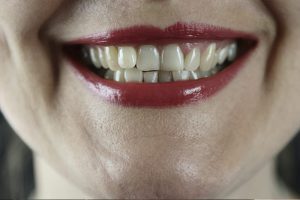If you’re like many parents, your face scrunches up in irritation whenever you hear that crunching noise when your child sleeps. Kids’ teeth grinding during sleep is known as a condition called bruxism. To many, the noise is like nails on a chalkboard. Parents always ask us, “What causes my child to grind their teeth at night?”
It could be several things.
But don’t panic if your child grinds their teeth while they sleep; bruxism is prevalent in children. There are two types of bruxism: sleep bruxism and waking bruxism, with sleep bruxism being more commonplace in children. Almost 50% of children grind their teeth at night at some point in their childhood.
It’s difficult to pinpoint why a child grinds their teeth at night, but there are various psychological and physical possibilities. Some causes of bruxism may include anxiety, misaligned teeth, or narrow passageways. But the most concerning possibility of all is that their bruxism might be due to parasites. Yes, we know that makes your skin crawl, and you may have just lost your appetite, but it is something to be aware of.

(Marek Studzinski/Unsplash)
Eradicating the Habit
You are probably at your wits end with the grinding and want it to stop. However, like many other habits, we must first determine the root cause of the bruxism and recognize the symptoms before tackling the problem. Some common symptoms and signs of bruxism in kids include:
- Loud crunching sound while sleeping (you know, the one)
- Painful jaw
- Skin allergies
- Restless in the afternoon
- Unable to concentrate
- Irritability
- Dark undereye circles
- Uneven wear on teeth
- Digestive issues
Two common causes of teeth grinding in kids are issues with their airways and digestive parasites. If parasites happen to be the underlying cause of bruxism for your child, do not ignore the problem. Leaving it be will only make the situation worse.
Why Do Parasites Cause Bruxism?
Many studies are out there looking at the correlation between bruxism and digestive worms. Although the results are currently inconclusive, many dental and digestive researchers believe that bruxism is exponentially more prevalent in children who have intestinal worms. We don’t know if parasites cause teeth grinding, but we know there is a correlation between the two. We know that the brain and gut are closely related via the vagus nerve. This is why many scientists believe that toxic parasites cause the brain to trigger bruxism in children.
If your child has parasitic worms, teeth grinding most likely won’t be their only symptom. They might also have allergies, food intolerances, and nutrient deficiencies. When yucky tapeworms, roundworms, or pinworms enter the digestive system, they release toxic molecules that negatively affect the body and trigger bruxism.
As disgusting as it sounds, parasites are more common than you may think. This is because young children often don’t pay any attention to sanitation and always put dirty toys in their mouths. They also usually have no awareness of putting their dirty hands in their mouth and biting their nails right after playing outside. Unwashed hands, toys, and water are all common homes for parasites.
Nail biting is one of the biggest culprits of digestive parasites. We suggest breaking nail-biting habits as soon as you notice them. Of course, that’s easier said than done, but look at what’s at risk if they continue the bad habit.
What to Do About Your Child’s Bruxism
- One of the first things you can do if your child is a chronic teeth grinder is to take them to their Utah family dentist. They’ll be able to do a nasal airway and sleep disorder exam. If the dentist finds nothing in the exam, you can check those two issues off the list and delve deeper.
- Take your child to the doctor for a parasite detection test. They will likely prescribe your child anti-worm medication if the test is positive.
- Encourage your child to eat a healthy diet enriched in vitamins A, B, and K2, which will help strengthen the immune system and eliminate the parasites.
Although it’s hard to stop teeth grinding, addressing the issue in your children is essential because of its harmful impact on their teeth. Bruxism can cause tooth erosion and permanent damage to the dental pulp. Furthermore, if the grinding results from parasites, the health issues could be endless. Waking bruxism is much easier to stop than sleeping bruxism because you can make your child aware of it and give them tools to prevent it. They can consciously tell themselves to stop before they even grind.
Teeth grinding during sleep is more complicated because people often don’t know they are doing it. Parents, spouses, or morning jaw and teeth pain may be the only way to be aware. If you’re concerned about your child’s teeth grinding, see the best kids’ dentist in Weber County, and we’ll do what we can to fix the issue.
